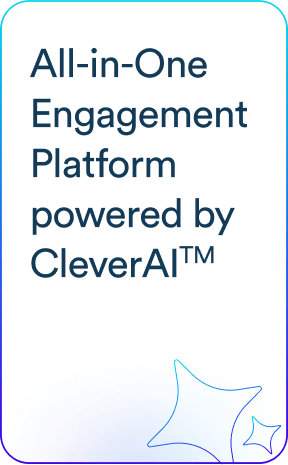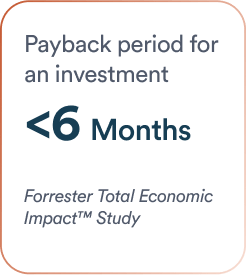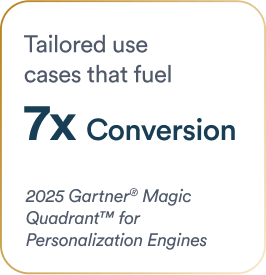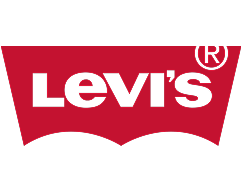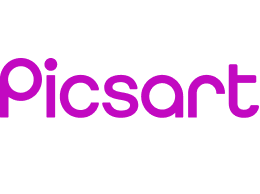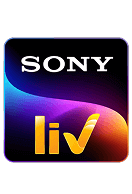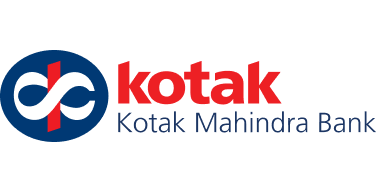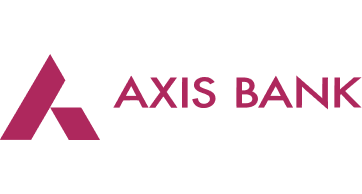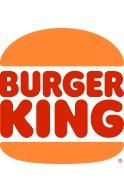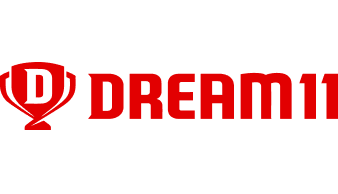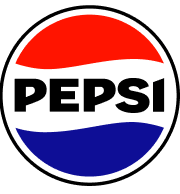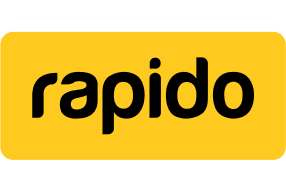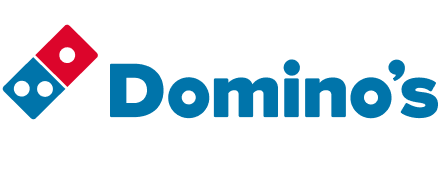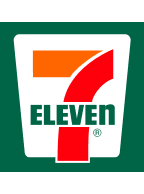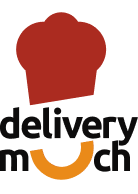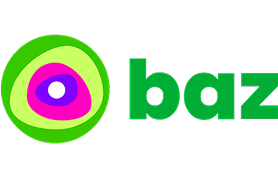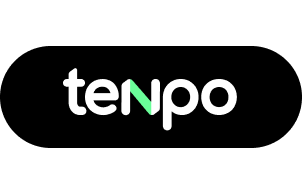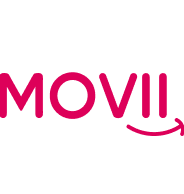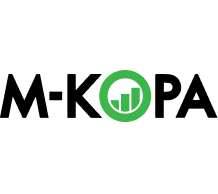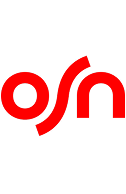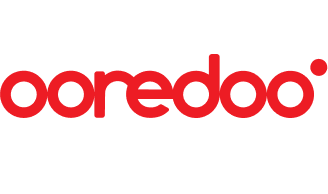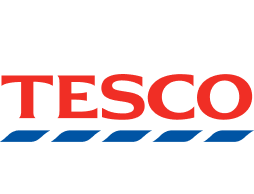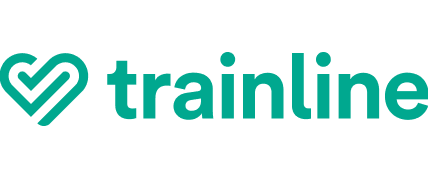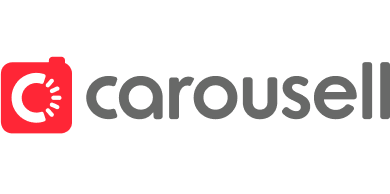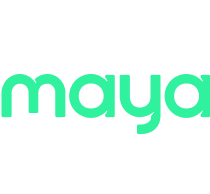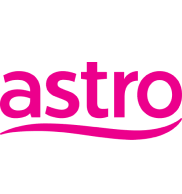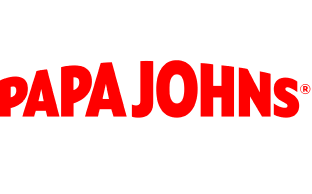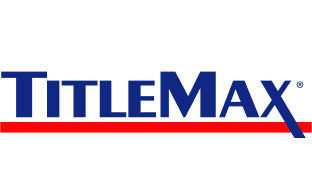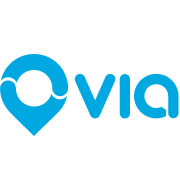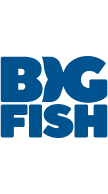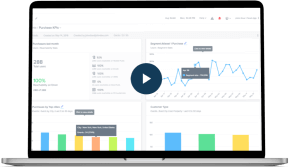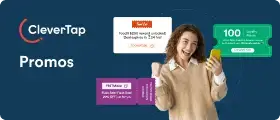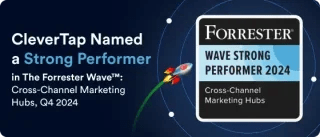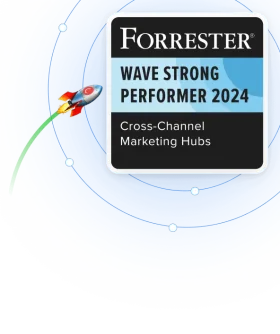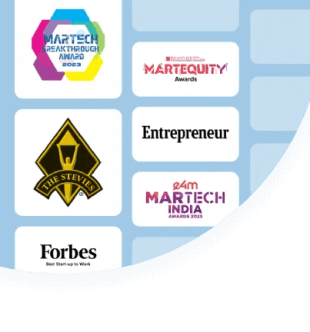Looking for a good Braze alternative? Look no further. We examined the field of Braze competitors to help you identify which customer engagement platform is the best choice to supercharge your marketing strategies.
When it comes to customer engagement platforms, Braze often stands out with its comprehensive features and exceptional scalability. But what if we told you there are some serious contenders out there that might be the better fit for your business?
The customer engagement landscape offers platforms for every need — from flexible tools for startups to advanced solutions for enterprises. These Braze competitors deliver innovative ways to boost conversions, gain insights, and streamline marketing. So, whether you’re aiming for higher conversion rates, deeper customer insights, or more efficient marketing workflows, keep reading to find the perfect fit for your unique needs.

1. CleverTap
CleverTap is Braze’s strongest competitor, outshining them largely due to CleverTap’s cutting-edge Clever.AI and the powerful TesseractDB. These juggernaut features offer major advantages in user engagement and data management.
Features:
- Real-time Analytics: Provides instant insights into user behavior, allowing for quick decision-making.
- Omnichannel Messaging: Supports email, SMS, in-app, and push notifications to reach users across multiple platforms.
- RenderxMax: Push notification technology ensures high delivery. RenderMax promises increased render rates.
- Automated Segmentation: Uses AI to segment users based on behavior, increasing the relevance of marketing messages.
- Personalization: Customizes user experiences with tailored content and recommendations.
- Lifecycle Optimizer: Maps users to lifecycle stages. The Lifecycle Optimizer tracks and optimizes the entire user journey from onboarding to retention.
- Campaign Optimization: A/B testing and advanced analytics to enhance campaign performance.
- Geo-Fencing: Sends targeted messages based on user location to increase engagement.
- Predictive Analytics: Forecasts user behavior to proactively address potential churn.
- In-App Messaging: Engages users directly within the app to boost retention and satisfaction.
- Journey Builder: Visual tool to design and automate user journeys for better engagement.
CleverTap’s Clever.AI harnesses advanced artificial intelligence and machine learning to optimize user engagement strategies. This system automates predictive analytics and segmentation, enabling precise targeting and personalization. By continuously learning from user interactions, Clever.AI enhances the effectiveness of marketing campaigns, drives higher conversion rates, and improves customer retention. This automation and intelligence in user engagement are superior to Braze’s more manual and less adaptive methods.
The game-changing TesseractDB is the world’s first database built specifically for customer engagement and retention, providing data capabilities unmatched by Braze. With the ability to capture a staggering 10,000 data points per user and save the entire user history, TesseractDB ensures deep user context and data granularity. This means businesses can perform highly detailed analytics and create precise user segments without worrying about data caps or lookback periods. Braze, by contrast, limits data points to 250 per user and has a shorter lookback period, which hampers long-term user insights and personalization efforts.
Clevertap is a unique, all-in-one platform that integrates segmentation, behavioral analytics, and multi-channel messaging. Unlike Braze, it does not rely on third-party integrations for behavioral analytics or customer data storage, making it easier for your business to create a 360-degree view of user behavior and campaign effectiveness.
The reduced reliance on other technical resources and flexible pricing options can lower Martech’s total ownership cost by 40%. The platform’s superior customer support, regional data centers, and vigorous security measures add additional layers of reliability and trust, making Clevertap the preferred choice for leading brands worldwide.
Pricing:
- Essentials Plan: Starts at $75/month, ideal for startups with up to 5,000 MAU (Monthly Active Users).
- Advanced Plan: Pricing on request, includes hyper-personalization, advanced analytics, and premium engagement channels.
- Cutting Edge Plan: Pricing on request, adds AI-driven predictions, real-time recommendations, and campaign intelligence tools.
Pros: CleverTap’s Clever.ai allows you to understand and predict where users will likely drop off and trigger the right personalized message at the right time. This can dramatically boost conversion and retention rates, increasing each customer’s lifetime value. Its advanced funnel capabilities support comprehensive customer lifecycle management, helping businesses effectively engage customers from onboarding through retention. By contrast, Braze’s funnels offer limited engagement and segmentation options, making it more difficult and time-consuming to act on insights.
Cons: Despite its advanced features, CleverTap may present a steeper learning curve and require more resources to fully utilize its capabilities, making it potentially challenging for businesses new to such platforms.
Compare CleverTap vs. Braze and learn why top brands prefer CleverTap!
2. Iterable
Iterable is a powerful customer engagement platform designed to create dynamic cross-channel marketing campaigns. It offers flexibility in building personalized workflows across email, SMS, push notifications, and in-app messaging. Key features include dynamic segmentation, data integration, A/B testing, and real-time analytics, enabling deeper insights and more effective targeting. Iterable’s user-friendly interface and comprehensive approach to multichannel marketing make it a strong choice for businesses seeking to enhance user engagement and optimize their marketing strategies.
Features:
- Cross-Channel Campaigns: Integrates multiple channels for cohesive marketing efforts.
- Workflow Studio: Visual drag-and-drop interface for campaign creation.
- Audience Segmentation: Detailed user segmentation for targeted messaging.
- Personalization: Dynamic content generation based on user data.
- A/B Testing: Optimizes campaign effectiveness through experimentation.
- Real-time Analytics: Immediate insights to refine strategies.
Pricing:
- Small Businesses and Startups: Pricing typically starts at around $500 per month, and it provides basic email marking, automation, and segmentation.
- Mid-Sized Businesses: Pricing generally ranges from $1,500 to $3,000 per month and includes advanced features like multi-channel marketing, in-depth analytics, personalized messaging, and A/B testing.
- Large Enterprises: For large organizations with complex requirements, pricing is highly customized and can start from $5,000 per month and upwards.
Pros: Iterable is ideal for businesses seeking to engage customers across email, SMS, push notifications, and more. Its flexibility in integrating with various data sources and applications allows for seamless execution of personalized campaigns. The intuitive interface and ease of use make it accessible for teams of all sizes, facilitating quicker implementation and adoption.
Cons: Iterable may lack some of the advanced AI-driven capabilities and deep data insights that platforms like CleverTap and Braze offer, potentially limiting the precision of customer segmentation and personalization. The platform’s focus on ease of use might result in fewer customization options for highly specialized marketing needs. While it supports multi-channel engagement, businesses seeking highly sophisticated, real-time interaction capabilities might prefer Braze’s offerings.
Compare the top Iterable competitors.
3. MoEngage
MoEngage is a customer engagement platform that empowers businesses to deliver personalized, multi-channel experiences. It integrates AI-driven insights with omnichannel automation to optimize user interactions across email, mobile, web, and social media. MoEngage’s dynamic analytics and segmentation capabilities enable targeted campaigns, enhancing customer conversion and retention rates. Ideal for data-driven marketers, it supports seamless communication and engagement throughout the customer lifecycle, ensuring relevant and timely messaging.
Features:
- AI Analytics: Leverages AI to provide actionable insights.
- Omnichannel Marketing: Unifies messaging across multiple channels.
- User Segmentation: Sophisticated segmentation for precise targeting.
- Push Amplification: Enhances push notification delivery rates.
- Personalization: Delivers personalized user experiences.
- Workflow Automation: Streamlines marketing processes with automation.
Pricing:
- Starter Plan: Basic analytics, user segmentation, push notifications, email and SMS campaigns.
- Growth Plan: Custom pricing; Advanced analytics, AI-driven insights, multi-channel marketing.
- Enterprise Plan: Growth Plan features plus global control groups, dynamic product messaging, advanced journey optimization, and dedicated support.
- Add-Ons: Predictive segmentation, revenue analysis, custom dashboards
Pros: MoEngage’s strong analytics and segmentation capabilities enable businesses to understand and target customer segments effectively. MoEngage’s user-friendly interface and comprehensive onboarding support make it accessible for businesses of various sizes, facilitating smoother adoption and implementation. The platform’s AI-powered recommendations and insights help optimize engagement strategies and improve customer retention.
Cons: While MoEngage offers strong multi-channel engagement and analytics, it may not match Braze’s depth in real-time interaction capabilities and advanced AI-driven personalization. Businesses with highly specialized needs or those seeking more granular data analysis might find MoEngage’s offerings less comprehensive. MoEngage’s features, while robust, may require additional investment in time and resources for full utilization, potentially posing a challenge for smaller teams or businesses new to customer engagement platforms.
Learn about the top MoEngage alternatives and compare CleverTap vs. MoEngage to find the best platform for your business.
4. UseInsider
UseInsider is a powerful customer engagement platform known for its AI-powered predictive analytics and personalization engines for recommendations. It excels in creating highly tailored user experiences across web, mobile, and email channels, leveraging AI-driven insights to optimize marketing strategies. This focus on personalization and segmentation enables businesses to predict customer behavior and preferences accurately, resulting in more effective and targeted campaigns. While other platforms may emphasize real-time data processing, UseInsider’s strengths lie in its ability to deliver deeper personalization and more precise marketing strategies, enhancing overall campaign effectiveness.
Features:
- AI-Powered Recommendations: Personalized content suggestions based on user behavior.
- Predictive Analytics: Forecasts user actions to tailor engagement strategies.
- Omnichannel Campaigns: Integrates multiple channels for cohesive marketing efforts.
- User Segmentation: Advanced segmentation for targeted messaging.
- A/B Testing: Optimizes campaign performance through experimentation.
- Real-Time Insights: Immediate feedback to refine marketing strategies.
Pricing:
- Small Businesses and Startups: Pricing starts at around $500 per month, providing access to core features such as email marketing, basic automation, and customer segmentation.
- Mid-Sized Businesses: For growing companies, pricing generally ranges from $1,500 to $3,000 per month, including advanced features like multi-channel marketing, in-depth analytics, personalized messaging, and A/B testing.
- Large Enterprises: For large organizations with complex requirements, pricing is highly customized and can start from $5,000 per month and upwards. This tier includes enterprise-grade features such as dedicated account management, custom integrations, advanced security measures, and comprehensive support.
Pros: UseInsider’s ability to manage complex customer journeys and deliver consistent experiences across channels makes it a strong choice for businesses looking to optimize their marketing strategies. Additionally, UseInsider’s comprehensive analytics provide actionable insights, helping businesses refine their campaigns and improve ROI.
Cons: UseInsider might present a steeper learning curve due to its advanced features and comprehensive capabilities, which could be challenging for smaller teams or businesses new to such platforms. The depth and complexity of the platform might also result in higher costs, potentially making it less accessible for smaller enterprises or those with limited budgets. In the end, some businesses might find Braze’s real-time engagement tools more suited to their needs.
Discover the top Insider competitors.
5. Salesforce Marketing Cloud
Salesforce Marketing Cloud is a robust platform designed for comprehensive marketing automation. It offers an integrated suite of tools that seamlessly connect with Salesforce CRM, providing deep data synchronization and a holistic view of customers. This platform excels in creating cohesive customer experiences across various channels, including email, social media, web, and mobile. With its superior data management and analytics capabilities, Salesforce Marketing Cloud is particularly well-suited for large enterprises looking to optimize their customer engagement strategies and enhance overall marketing efficiency.
Features:
- CRM Integration: Seamless synchronization with Salesforce CRM for unified customer data.
- Journey Builder: Visual tools for creating personalized customer journeys.
- Email Studio: Advanced email marketing capabilities.
- Social Studio: Social media management and engagement tools.
- Mobile Studio: Personalized messaging for mobile devices.
- Data Management: Comprehensive data analytics and audience segmentation.
Pricing:
- Professional Plan: Around $1,250/month, including core marketing features.
- Corporate Plan: $4,200/month, offers advanced capabilities.
- Enterprise Plan: Custom pricing includes full access to all features and dedicated support.
Pros: Salesforce Marketing Cloud’s deep integration with Salesforce’s CRM enhances data centralization, enabling seamless customer journey mapping and more personalized marketing efforts. The platform’s data analytics and AI capabilities allow for sophisticated segmentation and targeted campaigns, helping businesses optimize their marketing strategies and enhance customer engagement. The extensive customization options and scalability make it suitable for large enterprises with complex marketing needs.
Cons: The complexity and extensive features of Salesforce Marketing Cloud can present a steep learning curve, particularly for smaller businesses or those without a dedicated marketing and IT team. The platform’s higher cost may also be a significant consideration for companies with limited budgets, potentially making it less accessible compared to Braze. While Salesforce Marketing Cloud excels in comprehensive data integration and multi-channel marketing, businesses primarily seeking straightforward customer engagement tools might find Braze’s offerings more streamlined and user-friendly for immediate implementation.
Learn about the top Salesforce Marketing Cloud (SFMC) competitors.
6. Adobe Experience Cloud
Adobe Experience Cloud is a comprehensive suite designed for creating, managing, and optimizing customer experiences across multiple channels. It integrates tools for content management, personalization, analytics, and campaign orchestration, enabling businesses to deliver highly personalized and engaging customer journeys. With its advanced analytics and data integration, Adobe Experience Cloud helps businesses understand customer behavior, tailor interactions, and improve overall marketing effectiveness, making it an ideal solution for enterprises seeking to enhance their digital marketing strategies.
Features:
- Content Management: Comprehensive tools for managing and delivering personalized content.
- Customer Journey Analytics: Advanced analytics for tracking and optimizing customer journeys.
- Personalization: Tailored experiences based on user data.
- A/B Testing: Cutting-edge tools for optimizing content and marketing strategies.
- Multi-Channel Campaigns: Integrates multiple channels for cohesive marketing efforts.
- Real-Time Insights: Immediate feedback for refining strategies.
Pricing:
- Entry-Level Plan: Starts at around $1,200 per month, providing access to core features like content management, basic analytics, and email marketing.
- Professional Plan: Ranges from $3,000 to $6,000 per month, including advanced features such as customer journey analytics, personalization, and A/B testing.
- Enterprise Plan: Custom pricing starting from $10,000 per month, offering full access to all features, dedicated account management, custom integrations, and comprehensive support.
Pros: Adobe Experience Cloud offers a comprehensive set of digital marketing tools and excels in delivering personalized experiences through its advanced AI and machine learning capabilities. Its integration with other Adobe products, such as Creative Cloud, enhances its versatility, particularly for businesses that require cohesive brand management and smooth content creation workflows. Adobe Experience Cloud’s powerful data analytics and reporting tools provide detailed insights into campaign performance, customer engagement, and overall marketing ROI.
Cons: Adobe Experience Cloud’s extensive features and capabilities can result in a complex setup and significant learning curve, which may be challenging for smaller businesses or those without specialized marketing and IT teams. The platform’s comprehensive nature often comes with a higher price point, potentially making it less accessible for companies with limited budgets. While Adobe Experience Cloud excels in data integration and personalization, businesses seeking more straightforward, real-time customer engagement tools might find Braze’s more focused and user-friendly approach more appealing. Finally, the platform’s emphasis on a wide range of marketing functions may be overwhelming for businesses looking for a more targeted solution.
7. Klaviyo
Klaviyo is a leading email marketing platform designed for e-commerce businesses. It offers advanced tools for personalized email marketing campaigns, seamless integration with e-commerce platforms like Shopify and Magento, and turnkey automation features. Klaviyo helps businesses leverage data to create targeted, data-driven marketing strategies, enhancing customer engagement and driving sales. Its user-friendly interface and powerful analytics make it a preferred choice for online retailers aiming to optimize their email marketing efforts.
Features:
- E-Commerce Integration: Seamless integration with e-commerce platforms like Shopify and Magento.
- Email Marketing: Advanced tools for creating personalized email campaigns.
- Customer Segmentation: Detailed user segmentation for targeted messaging.
- Automation: Automates complex marketing workflows.
- A/B Testing: Optimizes campaign performance through experimentation.
- Real-Time Analytics: Immediate feedback to refine marketing strategies.
Pricing:
- Free: Free for up to 250 contacts.
- Email: Starts at $20/month, includes advanced email marketing features.
- Email and SMS: Starts at $35/month, offers enhanced support and segmentation.
- Enterprise Plan: Custom pricing for large businesses.
Pros: Klaviyo integrates seamlessly with e-commerce platforms, making it particularly beneficial for online retailers looking to leverage customer data for targeted marketing. Klaviyo’s powerful segmentation capabilities and analytics allow businesses to refine their audience targeting and measure the impact of their campaigns accurately. The platform’s ease of use and scalability make it a strong choice for businesses of all sizes, especially those focused on direct-to-consumer sales.
Cons: While Klaviyo is excellent for email and SMS marketing, it may lack the comprehensive multi-channel engagement features offered by Braze, particularly for businesses looking to integrate additional channels like mobile apps or web push notifications. Klaviyo’s focus on e-commerce could also limit its appeal to businesses outside this sector. For companies seeking advanced AI capabilities and real-time interaction tools, Braze might offer more sophisticated solutions.
8. OneSignal
OneSignal is a leading customer engagement platform specializing in push notifications, email, SMS, and in-app messaging. It offers advanced tools for targeted communication, enabling businesses to enhance user engagement and retention. OneSignal supports rich media notifications and provides advanced segmentation and automation features, making it ideal for personalized marketing campaigns. With its user-friendly interface and scalable solutions, OneSignal is trusted by developers and marketers to deliver efficient, multi-channel messaging.
Features:
- Push Notifications: Customizable notifications.
- In-App Messaging: Engage users directly in the app.
- Email Marketing: Dynamic email campaign tools.
- Segmentation: Targeted messaging.
- A/B Testing: Optimize messages.
- Real-time Analytics: Monitor performance.
Pricing:
- Free Plan: Includes basic functionalities like 1 journey with 2 steps, 6 segments, 2 data tags, 10,000 web push subscribers, and 10,000 free email sends per month.
- Growth Plan: Starts at $9 per month; 3 journeys with 6 steps, 10 segments, 10 data tags, and up to 100,000 web push subscribers.
- Professional Plan: Starts at $99 per month; 20 journeys with 50 steps, 20 segments, 100 data tags, dynamic content, and priority email support.
- Enterprise Plan: Custom Pricing; Tailored for large organizations with complex needs, offering unlimited journeys, segments, data tags, and advanced analytics.
Pros: OneSignal supports a wide range of notification types, including in-app messages and emails, allowing for multi-channel communication. Its intuitive interface and easy integration process make it suitable for businesses of all sizes, including those with limited technical resources. As a bonus, the generous free tier offers a cost-effective solution for startups and small businesses looking to scale their notification strategies.
Cons: OneSignal’s primary focus on push notifications may limit its utility for businesses seeking comprehensive customer engagement solutions across multiple channels. While it provides basic automation and segmentation features, it may not offer the same depth of analytics or personalization capabilities as Braze. Lastly, OneSignal’s feature set might require supplementary tools for a complete customer engagement strategy.
Discover the best OneSignal alternatives.
9. Customer.io
Customer.io is a versatile marketing automation platform designed to send targeted messages to customers based on their behavior. It allows businesses to create and manage automated email, SMS, and push notification campaigns with ease. Customer.io offers advanced segmentation, real-time data integration, and A/B testing, enabling personalized and effective communication strategies. Its user-friendly interface and analytics tools help optimize engagement and drive customer retention for businesses of all sizes.
Features:
- Automated Messaging: Sophisticated automation for emails and notifications.
- User Segmentation: Detailed segmentation for personalized marketing.
- Event Tracking: Monitors user actions for triggered messaging.
- API Access: Extensive API for custom integrations.
- A/B Testing: Enhances campaign performance.
- Analytics: In-depth reporting and analytics.
Pricing:
- Essentials Plan: Starts at $100/month, and includes basic customer engagement tools.
- Premium Plan: $1000/month for advanced features and segmentation.
- Enterprise Plan: Custom pricing, includes dedicated support and extensive integrations.
Pros: Customer.io is an excellent choice for businesses looking to send highly targeted communications through email, SMS, and push notifications. The platform’s flexibility and ease of use allow marketers to create complex automation workflows without extensive technical knowledge. Customer.io also offers useful segmentation tools and real-time data analytics, helping businesses refine their marketing strategies and improve customer engagement. Its user-friendly interface and clear documentation make it accessible for small to mid-sized businesses seeking to enhance their automated marketing efforts.
Cons: While Customer.io provides solid tools for email and SMS automation, it may not offer the same breadth of multi-channel engagement options as Braze, particularly in areas like mobile apps and web push notifications. The platform’s analytics and reporting capabilities, while functional, may not be as advanced or comprehensive as those provided by Braze. Businesses seeking advanced AI-driven personalization and predictive analytics might find Braze’s offerings more capable of supporting complex customer engagement strategies.
10. SendGrid
SendGrid is a leading email marketing platform that provides reliable, scalable email delivery and marketing solutions. It offers a range of features, including transactional email delivery, email marketing campaigns, and advanced analytics. Known for its powerful API, SendGrid integrates easily with various applications, enabling businesses to send bulk emails efficiently. The platform ensures high deliverability rates and provides tools for optimizing email content and performance, making it a preferred choice for businesses of all sizes.
Features:
- Email API: Powerful API for sending emails.
- Marketing Campaigns: Tools for creating and managing email campaigns.
- Analytics: Real-time tracking and analytics.
- Templates: Customizable email templates.
- Deliverability: High deliverability rates for emails.
- Automation: Automated email workflows.
Pricing:
- Free Plan: $0/month
- Essentials Plan: Starts at $19.95/month
- Pro Plan: Starts at $89.95/month
- Premier Plan: Custom pricing
Pros: SendGrid excels in email deliverability and offers comprehensive analytics, allowing businesses to track the performance of their campaigns and optimize their email strategy. SendGrid’s API-driven approach makes it highly flexible and integrable with other systems, making it a good fit for businesses with specific customization needs. The platform also provides tools for transactional email management, which is crucial for businesses that rely on automated communications.
Cons: While SendGrid excels in email marketing, it doesn’t have the same level of multi-channel engagement features as Braze. Its focus on email might limit its utility for comprehensive customer engagement strategies that require real-time, multi-channel interactions. Businesses looking for advanced AI capabilities and holistic customer lifecycle management might find Braze’s platform more suitable. Finally, SendGrid’s strong emphasis on API usage might require technical expertise, which could be a barrier for smaller teams without dedicated IT support.
11. Vero
Vero is a popular customer engagement platform designed to enhance marketing automation through advanced behavioral segmentation and personalized messaging. It enables businesses to create targeted email and push notification campaigns based on real-time user data and actions, improving customer interactions and conversion rates. With features like dynamic content, comprehensive analytics, and seamless integrations, Vero helps marketers deliver timely, relevant, and personalized experiences to their audience.
Features:
- Email Drip Campaigns: Automated email drip campaigns
- Real-Time Event Tracking: Track user activities in real time and send personalized messages based on their behavior.
- A/B Testing: Test different versions of your emails or messages to see which performs better.
- Multichannel Messaging: |Supports messaging across multiple channels
- Advanced Segmentation: Build highly specific user segments using API or SQL data warehouses.
- Dynamic Content and Personalization: Create personalized messages using dynamic content tools.
Pricing:
- Starter Plan: $54/month for 2,000 user records, 10,000 emails/month
- Pro Plan: $219/month for 15,000 user records, 75,000 emails/month
- Growth Plan: $549/month for 75,000 user records, 375,000 emails/month
- Enterprise Plan: $1,429/month for 250,000 user records, 1.25 million+ emails/month
- Connect Plan: $20/month for 20,000 messages/month free, with scalable pricing for additional messages and features like detailed logs and exportable analytics.
Pros: Vero’s event-based messaging allows for highly targeted interactions, improving customer engagement and conversion rates. Its flexible API and data integration options make it easy to incorporate into existing systems, providing a seamless experience for marketers and developers alike. The platform’s user-friendly interface and emphasis on data-driven decision-making make it a practical choice for businesses looking to refine their email marketing strategies.
Cons: Vero’s primary focus on email marketing and event-based messaging might limit its utility for businesses seeking comprehensive multi-channel engagement solutions, such as mobile or social media integration. While it offers strong tools for personalized email campaigns, it may not provide the same depth of analytics or real-time engagement capabilities found in Braze. Businesses requiring advanced AI-driven insights, predictive analytics, or extensive multi-channel support might find Braze’s offerings more robust.
12. Airship
Airship is a leading customer engagement platform that enables businesses to deliver personalized, real-time notifications across mobile, web, SMS, email, and other channels. It offers advanced features like A/B testing, predictive analytics, and in-app messaging to enhance user engagement and retention. Known for its scalability and reliability, Airship supports brands in creating meaningful customer interactions, driving higher conversions and loyalty through effective multi-channel communication strategies.
Features:
- Push Notifications: Rich media and interactive alerts.
- SMS Messaging: Effective SMS campaign tools.
- In-App Messaging: Direct user engagement within the app.
- Email Campaigns: Comprehensive email marketing capabilities.
- Analytics: Advanced reporting and insights.
- Personalization: Customized user experiences.
Pricing:
- AXP Essentials: Best for small brands or businesses starting with mobile engagement, includes push notifications, no-code app experiences, surveys, personalization, A/B testing, and more.
- AXP Enterprise: Suitable for mid-market and enterprise brands, adds email and SMS, mobile wallet, cross-channel orchestration, feature flags, and strategic guidance on top of Essentials features.
- Custom Plans: Tailored solutions based on specific business needs; contact Airship for a personalized quote.
Pros: Airship excels in real-time mobile marketing, enabling businesses to deliver timely and relevant messages that enhance user engagement and retention. Airship’s advanced segmentation and analytics capabilities allow for precise targeting and personalization, making it a strong choice for businesses focused on mobile-first strategies. The platform’s support for rich media notifications and location-based services further enhances its appeal for dynamic, contextually relevant marketing.
Cons: While Airship excels in mobile engagement, its focus may not fully meet the needs of businesses seeking a broader, multi-channel engagement platform. Businesses looking for more advanced AI-driven insights and extensive predictive analytics might find Braze’s offerings more comprehensive. Airship’s strong emphasis on mobile can also mean that businesses needing a more holistic approach to customer engagement might require supplementary tools to cover all their marketing and engagement needs.
Explore the top Airship competitors.
13. WebEngage
WebEngage is a comprehensive customer engagement platform that offers tools for personalized marketing across various channels like email, SMS, web, and mobile push notifications. It excels in user segmentation, real-time analytics, and journey automation, enabling businesses to create highly targeted and effective marketing campaigns. WebEngage’s intuitive interface and powerful analytics make it a powerful solution for improving customer retention and conversion rates.
Features:
- Multichannel Engagement: Unified messaging across different channels.
- User Segmentation: Advanced targeting options for better user engagement.
- Automation: Sophisticated workflow automation to streamline processes.
- Personalization: Tailored content to enhance user interaction.
- Analytics: In-depth performance insights for data-driven decisions.
- Surveys: Tools for collecting valuable user feedback.
Pricing:
- Solo Plan:
- Cost: $199 per month
- Band Plan:
- Pricing during consultation.
- Designed for mid-sized businesses with a higher number of MAUs.
- Choir Plan:
- Targeted towards larger businesses
- Offers more advanced features and higher limits on MAUs.
- Orchestra Plan:
- Custom pricing
- Ideal for very large enterprises requiring extensive customization and support.
Pros: WebEngage’s journey designer feature allows for the easy creation of complex, automated workflows, helping to streamline customer interactions and improve engagement. The platform is particularly strong in real-time user engagement, offering features like personalization and predictive analytics to optimize customer experiences and drive retention. WebEngage’s integration capabilities with various CRM and data analytics tools enhance its utility in providing a seamless customer journey.
Cons: While WebEngage offers comprehensive multi-channel engagement, it may not match Braze’s depth in real-time interaction capabilities and advanced AI-driven personalization. Businesses that require highly sophisticated predictive analytics or deep integration with broader marketing ecosystems might find Braze’s solutions more suitable. While it provides some great engagement tools, the platform’s user interface and experience may not be as streamlined or intuitive as Braze, potentially requiring more time and resources for effective use.
Discover the best WebEngage competitors and compare CleverTap vs. WebEngage to choose the right customer engagement platform.
14. Pushwoosh
Pushwoosh is a powerful mobile-focused marketing automation platform designed for efficient push notification and multi-channel messaging. It offers easy-to-use tools for creating, scheduling, and targeting push notifications, emails, and in-app messages. Pushwoosh supports real-time messaging, rich media, and personalization, enabling businesses to engage with their audiences effectively. Its multi-platform compatibility and advanced analytics help track campaign performance, making it ideal for companies seeking streamlined, cost-effective communication solutions.
Features:
- Push Notifications: Customizable and effective notifications.
- In-App Messaging: Engages users within the app.
- User Segmentation: Targeted messaging based on user behavior.
- Automated Campaigns: Streamlines marketing workflows.
- Analytics: Real-time performance tracking.
- Multichannel Messaging: Supports various communication channels.
Pricing:
- Free Plan: For projects with up to 1,000 subscribers, includes basic push notifications.
- Subscription Plan: Starts at $49/month, offering omnichannel campaigns
- Custom Plan: Tailored pricing based on specific business needs, includes personal onboarding, 24/7 priority support, custom contracts, dedicated private cloud, single sign-on, and ultra high-speed push delivery.
Pros: Pushwoosh supports rich media notifications, including images and interactive elements, which can significantly boost user interaction and engagement. Pushwoosh also provides advanced segmentation capabilities, allowing businesses to target specific user groups based on behavior, location, and other criteria. It integrates well with various app development tools and platforms, making it a suitable choice for mobile-first businesses or those with a strong emphasis on app-based interactions. Pushwoosh’s pricing model is generally more accessible, making it a cost-effective solution for startups and smaller businesses.
Cons: Pushwoosh has less advanced analytics and personalization capabilities compared to Braze, which offers deeper AI-driven insights and predictive analytics. Businesses requiring sophisticated real-time engagement tools marketing automation features might find Braze’s offerings more aligned with their needs. Pushwoosh’s specialized focus could also necessitate additional tools or platforms to achieve a complete customer engagement strategy.
Find the Right Braze Competitor for Your Business
Choosing the right customer engagement platform is critical to delivering personalized, timely, and impactful experiences. While Braze remains a strong contender, a range of competitors now offer compelling alternatives that cater to varying business needs — from startups to large enterprises. Whether you’re prioritizing scalability, advanced analytics, or cross-channel orchestration, the market today provides diverse options to help you elevate your engagement strategy and drive lasting customer relationships.
Learn why leading brands prefer CleverTap.
Agnishwar Banerjee 
Leads content and digital marketing.Expert in SaaS sales, marketing and GTM strategies.
Free Customer Engagement Guides
Join our newsletter for actionable tips and proven strategies to grow your business and engage your customers.

